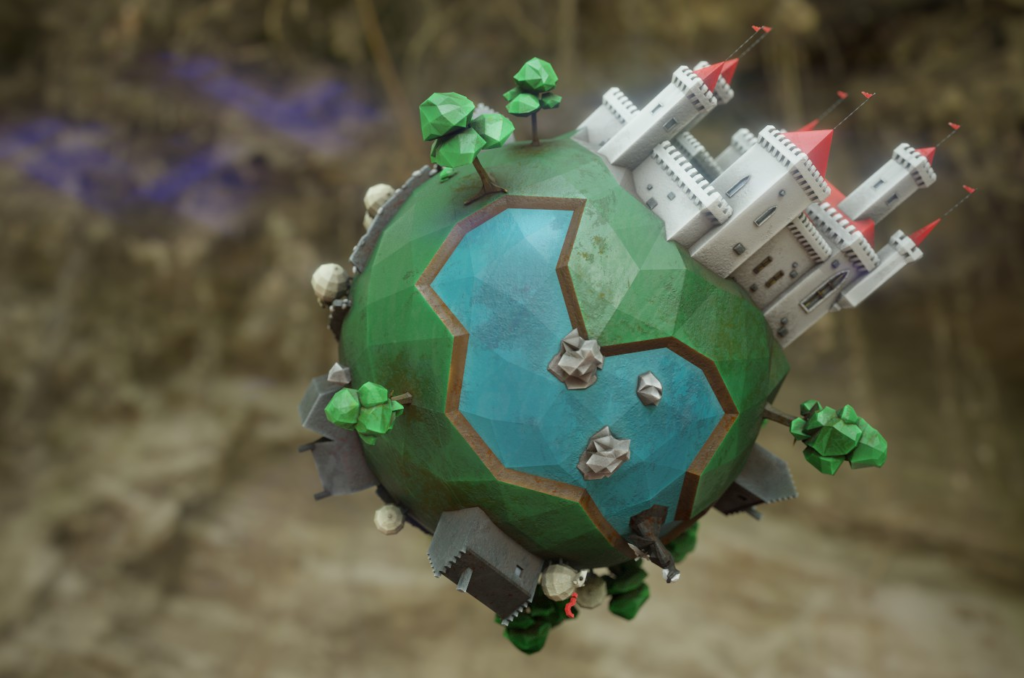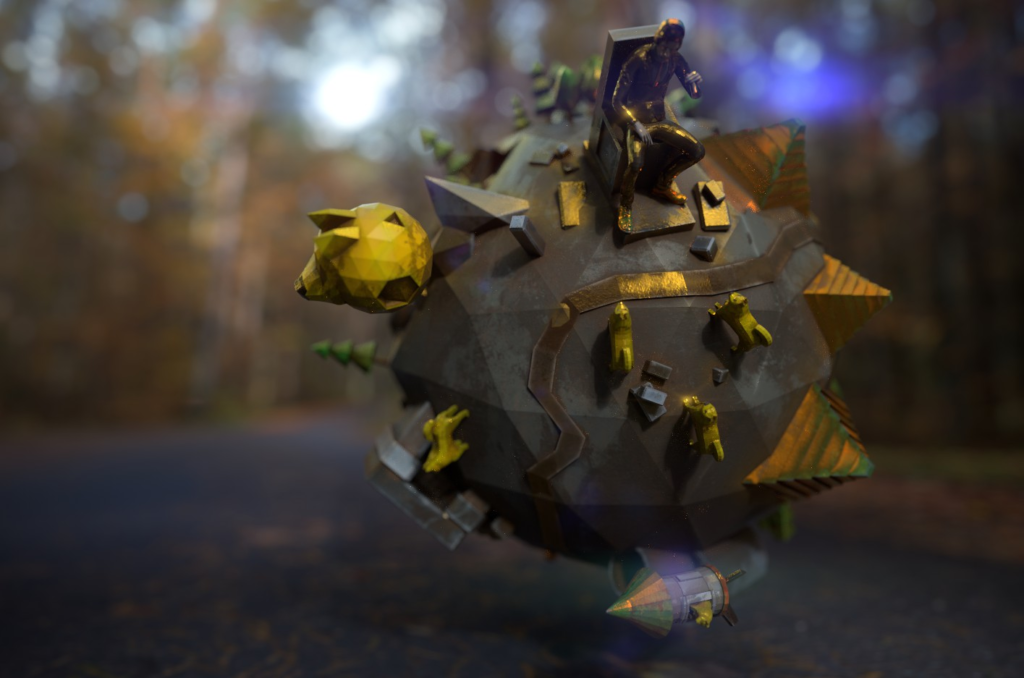
Launching a project at the intersection of gaming, metaverse and DeFi requires careful consideration of how best to simplify messaging and effectively communicate complex concepts with disparate audiences. For many members of the community, their level of engagement with and enthusiasm for a project is heavily influenced by the economics of the project’s token(s). Some of the most frequent questions we get about our Genesis metaverse project are related to the tokenomics. In this interview with CEO Jason Cassidy, we get to the heart of some of these questions.
Jason, we know DeFi is a major component of what we are doing with the metaverse, and part of that is earning GENESIS. What can we expect from this new token and how will the community benefit?
The GENESIS token powers the play-to-earn rewards and DeFi rewards of Genesis – it’s really the heart of the community. So we’ll be releasing the token in a number of ways. First, via a farming pool where community members can stake their GAME to earn GENESIS. Second, via the World Stakes, and Governance rewards, which reward community members who participate in governance and development of Genesis and its worlds. And third, via incentives and rewards for community members who help move the project forward, such as content creators, game developers, and artists. Unlike many projects, GENESIS is a truly fair launch: All tokens will be distributed to community members, with none set aside for presales, investors, or team members.
So what else? What other reasons are you releasing a new ERC20 token? What will we see through this relationship between GAME and GENESIS.
GAME is the key to unlocking the DeFi rewards of GENESIS. Being part of our community has always involved owning GAME, and World stakes and GENESIS farming are no different. Both require GAME ownership in order to receive GENESIS rewards. Besides the benefits to owners of GAME, we can experiment with DeFi innovation and take much bigger risks with a new token, without risking the utility of GAME. If we’re successful (we expect we will be), we get all the benefits, without the added risk. If something goes wrong with GENESIS, GAME is still fine.
Speaking of GAME, some token holders have questioned what’s in store for the future. What would you say to the GAME token holders?
GAME is central to the tokenomics of the entire project. In fact, you should start moving your GAME over onto the Polygon network, so you can be ready to stake your GAME in the GENESIS farming pool launch in early October. Beyond that, the main way to earn GENESIS over time will be to hold World Stakes, which you’ll soon be able to secure with our upcoming NFT launch. The only way to buy those World stakes is with GAME. This should have a massive impact on the demand for GAME, as we anticipate people will be locking up large amounts of GAME for decades. GAME is not going away or being deprioritized.
Can you give an example of how people can earn GENESIS?
Earning GENESIS in the farming pool is easy! When you deposit your GAME into the pool, you’ll start accumulating GENESIS tokens in your account. To collect them, just withdraw your GAME, and the pool will calculate your GENESIS rewards and send them to you too. To reward early adopters, reduce inflation, and ensure that rewards will continue for a long period, the farming pool rewards decrease slowly over time, with the rewards halving over the span of 12 months. The pool handles this calculation, and determines how much GENESIS you should earn.
Earning GENESIS through World Stakes is equally easy, though the math is more complex. Just like the farming pool, you’ll buy a World Stake NFT with GAME. These NFTs are bonded NFTs, so they have two important properties to remember. First, the price of the NFT increases as more people buy more copies of it. This controls the supply of each World Stake. Second, World Stakes are 100% liquid assets – you can sell them back to the contract at any time. When you sell it back, you’ll receive GAME equal to 90% of the current price for the NFT. This could be more (or less) what you paid for it.
Now you own a World Stake, earning GENESIS works much the same way as the farming pool. The longer you hold it, the more you’ll earn, and the rewards decrease over time (but more slowly than the pool rewards – the halving takes 24 months). You can, of course, buy more than one World Stake – you’ll earn the same amount of GENESIS from each one.

And is this something that will be set in stone at launch, or will the community have a say in future DeFi functionality?
Initial contracts will be set up to provide the foundational economics. By nature of smart contracts, they can’t be changed but if it makes sense, can be extended. We really hope community members will engage us with great suggestions and these can become part of what we do in the future. We see this entirely as our project, owned by the community and the team implementing the smart contracts. In addition, we’re holding a pool of GENESIS in reserve that can be used to provide the DeFi and play-to-earn rewards that the community most wants to see.
So people who want to buy the GENESIS token on its own or buy one of the World Stakes NFTs will need to be prepared to purchase them with GAME, correct? At this point, are you able to estimate how much GAME it will take to buy a World Stakes NFT? How does the bonding curve work?
That’s correct. You will need to hold GAME if you want to farm GENESIS or buy one of the World Stakes. (Here are the instructions for getting GAME, if you’re not already holding it.) And you’ll need to deposit your GAME to the Polygon network (you can do that at wallet.matic.network).
World Stakes are bonded NFTs, where the buy and sell prices are calculated using the number of World Stakes that currently exist for that World. Unlike previous bonded NFTs where the 100th token costs 10,000 times the price of the first token, the World Stake bonding curve is incredibly shallow. The price of a World Stake only increases 4x between the first token bought and the 1000th token bought. This shallow curve maintains the price discovery aspect of the bonding curve, and ensures that later adopters aren’t priced out of Worlds. The bonding curve also allows you to sell back your World Stake based on the number of NFTs that exist, giving you instant liquidity.
It really seems like you’ve thought carefully through the complexities. Does this model offer some major benefit to the project stability or sustainability? How can folks compare this with other projects they might be considering joining?
There are different scopes for projects and different means to get there. We care deeply about economics making sense and avoiding pitfalls of other projects. We definitely have a grand vision for a 100 year metaverse, where GENESIS powers an entire metaverse and gaming ecosystem. Where Worlds are like token launches and all the Worlds can benefit from gaming tech collectively while forging a unique vision on their own.
The biggest thing that all these economic decisions are driving towards is a metaverse that’s community-driven, and is around for the long haul. That’s why we aren’t taking VC funding, and why we’re setting up the whole project as not-for-profit. So if you want to really get involved with a project, with a seat at the table, making decisions, then GENESIS is the place for you.

We’re almost out of time, so one last question. GENESIS token will be available on exchanges prior to the World Stakes NFT launch. Why would someone choose to purchase the token Vs. an NFT? From the community perspective, what are the advantages of one over the other?
We want to provide more than one method for acquiring GENESIS, because we have a diverse community. Some people are die-hard NFT collectors, and will want to make sure they have a full set of World Stakes. Some people will want to focus on a specific world, and will buy up lots of World Stakes for that world. But other people prefer dealing with direct fungible tokens rather than NFT’s like our World Stakes, or don’t want to get involved with governance.
And not everyone has the same amount of money. The GENESIS farming pool allows you to stake a single GAME and still earn some GENESIS. But because the World Stakes are NFTs, if they’re in high demand, you may have to lock up thousands of GAME to own one. Even though you’ll get almost all of that back when you sell, the initial buy-in might be too high for some community members. We want to make the token accessible to everyone whether they want to own Worlds or not.
Thanks for taking the time to talk with us, Jason. Any last thoughts?
It was a pleasure. We covered a lot of ground, and this is just the tip of the iceberg. Let’s get back together soon and do some deeper dives into the details of GENESIS farming, World Stakes, and Governance Rewards.
Future parts:
Part 2: GENESIS Farming, plus a breakdown of where the tokens are going
Part 3: World Stakes, plus some hints on Land sales
Part 4: Governance, plus the community funding and DAO/Foundation pieces